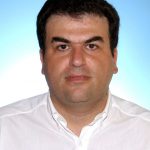| Subject Area | Energy |
|---|---|
| Semester | Semester 6 – Spring |
| Type | Elective |
| Teaching Hours | 4 |
| ECTS | 6 |
| Prerequisites |
|
| Recommended Courses |
|
| Course Site | https://eclass.uth.gr/courses/E-CE_U_213/ |
| Course Director |
|
| Course Instructor |
|
The course focuses on the measurement of non-electrical quantities and the design of fixed position and portable measurement systems. More specifically:
- Sensors and measurements: Physical principles under which the sensors operate. Static and dynamic characteristics. Calibration curve. Linearity and hysteresis.
- Measurement of mechanical quantities: Position measurement. Speed measurement. Acceleration measurement. Measurement of force.
- Pressure measurement: Manometers. Instruments using a diaphragm. Bourdon tube, Instruments of special type.
- Level and flow measurement: Measurement using a rod. Float type meters. Level measurement using ultrasound and RF. Orifice type meters. Venturi type meters. Pitot tube meters. Electrodynamic flow meters. Coriolis flow meter.
- Measurement of acoustic quantities: Microphones. Noise sound pressure level measurement. Noise spectrum evaluation. Measurement of acoustic intensity. Measurement of acoustic power.
- Temperature measurement: Bimetallic thermometers. RTD detectors. Thermistors. Thermocouples. Semiconductor temperature sensors.
- Signal conditioning systems: Power supplies. Instrumentation amplifiers. Current to voltage converter. Filters. 4-20 mA transmitter. Wired and wireless data transmission.
- Analogue to digital conversion: Sampling of analog signals. Quantization. A/D converter errors. Linear coding of data. Digital to analog conversion.
The course deals with the measurement of non-electrical quantities such as displacement, velocity, force, temperature, pressure, flow, etc. In addition, with the design of portable and stationary monitoring stations that comprise of: sensors, conditioning circuits, transmission system, analog to digital conversion and data processing system.
Upon successful completion of this course, the student will be able to:
- understand the physical principles under which the different kind of sensors operate
- select the most appropriate sensor and measurement method for each physical parameter
- take appropriate protection measures and reduce noise to a minimum
- design a fixed position or portable measurement system based on the conversion of an analogue signal to its digital form.







